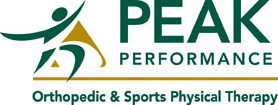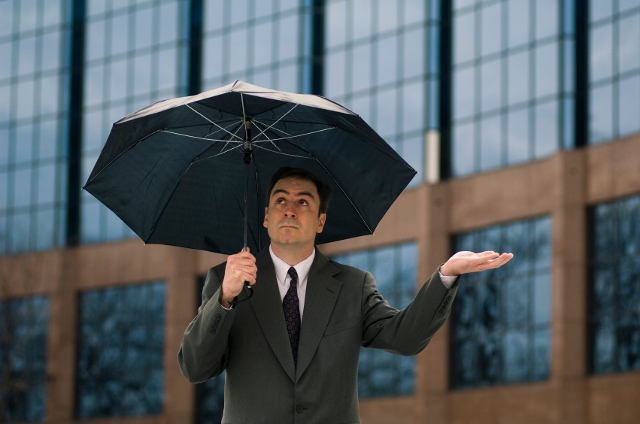How do changes in weather affect my arthritis?
Why do my joints hurt when its raining?
At some point in time, you’ve heard your grandma or grandpa make claims that it was going to rain because they could feel it in their joints. Although there is no solid scientific evidence to support this, there are theories to explain it. I can tell you from my experience in working as a physical therapist, there is some validity to it.
Arthritis simply means, an inflamed joint. There are several types of arthritis and the type we are referring to in this blog is osteoarthritis. Osteoarthritis is a natural degenerative process that occurs to our joints. All of us at some time or another may be impaired by it as we can’t escape old father time. Some people are affected more than others by the degenerative changes, whether it be from genetic influence or physical stress applied to our body in everyday life.
I’ll try to explain the theory without getting too technical. Essentially, our bodies want to live in equilibrium and this applies to our joints. Our joints are surrounded by a capsule and within the joint capsule there is fluid (joint fluid or synovial fluid). The joint capsule has an optimal pressure gradient to it. Our environment in which we live has atmospheric pressure. Atmospheric pressure is defined as the external force or weight of the atmosphere around our bodies at any given point. In meteorology, atmospheric pressure is referred to as barometric pressure to describe warm fronts (high-pressure) or cold fronts (low-pressure).
A simple model to think about is a balloon. When you blow air into a balloon to its optimal size, it is in equilibrium. When an external force is placed around the balloon with your hands, the balloon surface area becomes slack and cannot expand. This would be similar to a high-pressure system approaching, the increase in barometric pressure slacks the joint capsule which decreases the joint cavity pressure. This in turn prevents the joint capsule from swelling which minimizes or lessens pain in an arthritic joint. Conversely, if you over-inflate the balloon beyond its optimal size, the balloon surface area expands too much. This would be similar to a low-pressure system approaching, the decrease in barometric pressure causes an increase in joint capsule tension thus increasing joint cavity pressure. The increased joint pressure may produce the pain and stiffness feeling your grandma or grandpa was referring to.
It is also theorized that when joint pressure increases it stimulates inflammatory processes (cytokines) which plays havoc on the pain receptors (nociceptors). The greater the pressure in the joint cavity, the greater the pressure on the nerve endings that infiltrate the joint capsule and other structures.
What is known about the affects of weather on our joint pain is that its purely subjective. One person may feel more effect from weather changes than another. Arthritis is a condition which is not caused by weather changes or climate. Changes in atmospheric pressure may affect an increase in joint pressure only long enough to make a person’s arthritic joints hurt.
If you feel like your joints are effected by storm fronts, try and stay ahead of the weather if at all possible. Watch the forecast and plan accordingly. Hours or even days before a low front sweeps in, try increasing your frequency of stretching to the joint, increase your water intake (64 oz./day), reduce physical stress on the joints by avoiding rigorous work/chores and lastly try taking an over the counter anti-inflammatory. Talk to your doctor or local pharmacist to determine which over the counter anti-inflammatory would be best for you to take and certain ones may cause adverse side-effects.
S. White


this article upon barometric pressure has explained a lot to me . I now know that when the weather / barometric pressure changes I begin to develop joint pain and or very sore knee joint do to the change in pressure I now know that the joint does not like the pressure change be it going up in pressure or if the pressure is coming down.
ive noticed that I cant tell if the barometric pressure is 4-6 points off either way from the normal reading of 30 % I get pain usually around 1 to 2 hours before change in the weather . I will take the therapist’s advise and adjust my abilities to the pressure change .by exercising before the pressure goes up or after the pressure comes back down .. I wish to thank Sean White for his knowledge upon this topic
Hi Todd,
I’m glad to hear the article was beneficial for your joint pain. In addition to modifying your exercise routine around atmospheric pressure changes, you should also consider modifying your chore and/or work activity schedule as well. Take care.
First time I heard this, was at my Chiroprators office
In 2006. I decided to keep a journal. For four
Months when I woke up, I documented how I felt:
Monday March 20, 2006; my bone hurteverytime time
I move. Barometric Pressure 28.6
Example:
March 21, 2006 I feel really good today, joints ache a
Little, but I feel really good. Barometric pressure 30.1
Keep a journal like I did for 4 months. Write in it everyday.
Everything in the reply is true except the month and days.
I do not have my journal in front of me. I wanted to give
an example. I found out that when the Barometric Pressure
is 30, we are fairly normal. When it goes higher, it is like
Being in therapy and being gently stretched. It feels great.
Under thirty like today June 20th 2018 when I woke my
Whole body hurt. The barometric pressure in West Virginia was
at 09:45; 29.28,
That is a great idea to journal your symptoms each day and correlate it with barometric pressure readings. Also important to document activity versus sedentary hours as certain activities, or lack thereof, can be contributing factors to symptoms.